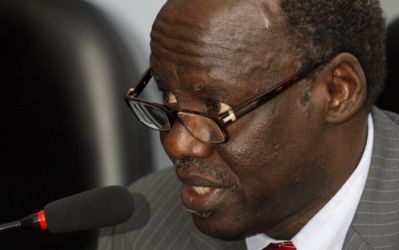S. Sudanese opposition leader calls for separation of army from politics
June 1,2014 (JUBA)- The leader of South Sudanese opposition Sudan People’s Liberation Movement for Democratic Change (SPLM-DC), Lam Akol, has called to depoliticize the South Sudanese army and separate it from the ruling party , SPLM.

The during the interim period and after the independence, attempts to professionalise the former rebel guerrilla have failed due to the emergence of different insurgencies and the need to integrate those who signed peace agreements into the “national army” which remained strongly divided.
The opposition leader made the remarks at a public gathering where he expressed the position of his party on the current armed conflict and ways it could resolved, stressing on the need for a cessation of hostilities.
“Hunger is looming and threatens to extend to next year as we are about to miss the rainy season. Therefore, stopping this senseless war and the attainment of peace is the priority to which all of us should pay undivided attention,” Akol emphasised.
He further pointed out that there can be no winner in such conflict but more destruction and death among South Sudanese.
SENSE OF ENTITLEMENT
Akol further added that the conflict was precipitated by dismissal of some cabinet ministers last year by President Salva Kiir who believed they should have not been relieved of their duties because they had developed sense of entitlement.
“There was a sense of entitlement among some of the Ministers that have been in government since 2005. Their removal in 2013 was seen by them as a betrayal on the side of the President,” he said.
FEDERAL SYSTEM
Akol joined calls supporting a federal system for the new country, arguing that his party in the 2010 at an All Southern Sudanese Political Parties Conference circulated a paper on the preference of the system of governance in our country.
“We stated clearly that given the tribal nature of our society the best system of rule was a parliamentary system. And that given our diversity and the historical demand of our people, our country should adopt the federal system of governance,” he said.
“Therefore, we are for a federal parliamentary system akin to, but not exactly like, the system in Ethiopia, India, Germany, Canada, Australia, etc. Federalism, as we all know, must be tailored to the peculiarities of the country concerned,” he explained.
Recently in a meeting held in Juba over federalism, Equatorian politicians and intellectuals largely expressed their support for a federal state in South Sudan, joining the rebel leader Riek Machar who calls for the same system.
(ST)
